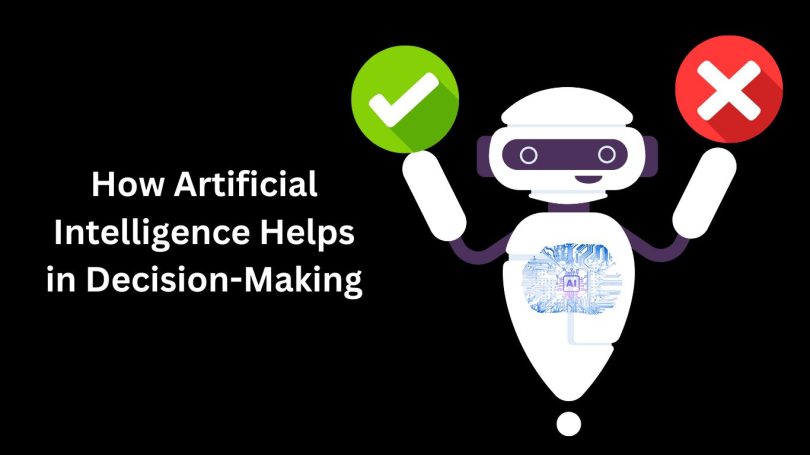The emergence of AI will give birth to a groundbreaking era of business intelligence, especially in business decision-making processes. Data has been a foundation of modern business operations for many years, letting business owners and managers shape their strategies and discover their target consumers better.
The proliferation of data has presented a challenge that is the overwhelming nature of digital information put up by digital media which in turn makes the human brain stunned when trying to process it. Here enters AI, with its unique capacity to process big data at lightning speed and with incredible accuracy.
It is AI that analyzes the data in exceptional ways, especially in dealing with the enormous volumes of data generated in today’s digital era. At the same time as the conventional data analysis techniques flounder under the devastating data flow, the AI algorithms, especially those that employ machine learning procedures, are perfectly designed to work with huge data. Such algorithms can detect demographic, time or spatial trends and correlations; allowing businesses to get detailed and accurate information. In the same manner, AI provides companies with a channel for decision-making based on facts extracted from the available data.
What are AI Decision Making Technologies?
AI decision-making is the process where artificial intelligence systems work with data, make decisions predict things, and perform precise decisions without human participation or by including humans in some of the processes.
This processing is vital for the cases where the data processing is handled by AI platforms, primarily. Ai-assisted tasks like anomaly detection, data crunching, complex analysis and trend spotting are possible with AI.
Degrees of AI Decision-Making
There are different degrees of AI decision-making…
Decision Support: With this method, businesses benefit from the association with AI systems predicting, diagnosing, or descriptive analytics in decision-making. The synergy between human intelligence and data-driven insights is seen to improve decision-making by using common sense, expertise and data.
Decision Augmentation: This approach involves prescriptive or predictive analytics, which are used to recommend various decision alternatives. This approach provides a platform for merging AI capabilities with human knowledge and thereby permits the quick analysis of a great amount of data, thus making the problem less complex and therefore improving the decision-making process.
Decision Automation: Decision automation is analogous to decision augmentation as it is also based on prescriptive or predictive analytics. Nevertheless, the closure of the process can be fully automated, expanding the efficiency, speed and consistency of decision-making processes, hence enhancing the whole work efficiency.
How AI Helps Decision Making
AI contributes significantly to decision-making in different factors, using its capacities to manage abundant data and generate the best results.
Here’s how AI contributes to decision-making…
Automation and Efficiency
AI (Artificial Intelligence) takes care of cognitive and physical duties, such as decision-making and making it faster and more accurate. It accomplishes this task by automating repetitive work and reducing the necessity of a human workforce because it improves the performance of many domains including weather forecasting and disaster management.
Marketing Decisions
AI facilitates the creation of business decisions that can navigate the complexities of market changes by understanding dynamic customer behaviors. With the help of AI’s modeling and simulation techniques, customer preferences are reached, therefore, product alignment and strategy development are successful.
Customer Relationship Management (CRM)
AI is the core of the CRM process because it can automatically collect data, maintain contact and even allocate leads. AI-spearheaded buyer personas modeling forecasts customer lifetime value, thus allowing marketing teams to work more smartly and efficiently.
Recommendation Systems
At first, recommendation systems were implemented in music content sites only, but after that, it has been found that recommendation systems can be applied to different industries as well. Recommendation systems help to figure out user content preferences, as such they offer personalized recommendations thereby enhancing customer engagement and decision-making.
Automation in Market Segmentation and Campaign Management
AI-driven automation simplifies segmentation and campaign management as a result makes marketer’s decisions on marketing strategies efficient. Distribution automation and predictive analytics allow retailers to trace the trends in the market and come up with effective solutions to the demand.
Search Engine Optimization (SEO)
Search engines with AI ability are able to identify customer’s interests on websites, products or web pages hence eliminating the manual effort and increasing search functionality. AI that relies on hyperlinks finds cohorts of hyperlink pages, which helps in knowing consumer interests and preferences.
Conclusion
AI is the key factor in turning the raw data into actionable decisions in the business area. It does not only automatize tasks, but it also helps companies to be faster and smarter to make the right choices in the shortest time. AI technology will keep on developing and its capability of making a company efficient, predicting market shifts, and personalizing marketing strategies will improve. Organizations that employ AI today are in a position that grants them access to a new future of AI-based intelligent decision making and thus they will have an advantage over competition in the future.



